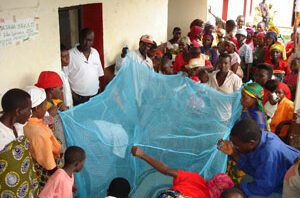Get your kids to exercise, eat right, and control their portions — these steps can help combat childhood obesity, we're told. But new research on persistent chemicals points to the fact that as parents, we're not getting the whole story.
Researchers in Spain found that whether a child, especially a girl, will be obese is not just dependent on lifestyle choices, but also on the child’s exposure to persistent organic pollutants (POPs) before birth. As a mother of a 4-year-old daughter, this worries me tremendously.
The Spanish researchers followed 344 children from birth to age 6.5 years, and found that exposure in the womb to certain POPs such as DDE (the breakdown product of DDT) and PCBs are clearly linked to children becoming overweight later in life.
This is alarming, since being overweight can lead to numerous health impacts for children, such as girls undergoing early puberty, children developing diabetes, high blood pressure and even certain cancers, as well as to social and economic problems later in life.
Girls more susceptible than boys
After adjusting for other factors that can affect children’s weight (such as their weight at the time of birth and if their mothers smoked during pregnancy), the study teased out the differences between girls and boys. It seems boys' exposure to DDE and PCBs is unrelated to their becoming overweight, though their exposure to DDT as well as having a diet with an average or above average fat intake were linked to their being overweight by age 6.5 years.
The study showed a significant link between the sex of a child and their likelihood of being overweight due to prenatal POPs exposure.
So not only have DDT, DDE and other POPs chemicals been linked to health impacts such as reproductive harm, neurological impacts, endocrine disruptions and various cancers, but now evidence is increasingly pointing towards these chemicals acting as ‘obesogens’— which set young children up for a lifetime of health problems and social issues.
Surely, our children, and especially our daughters, deserve better than this.







